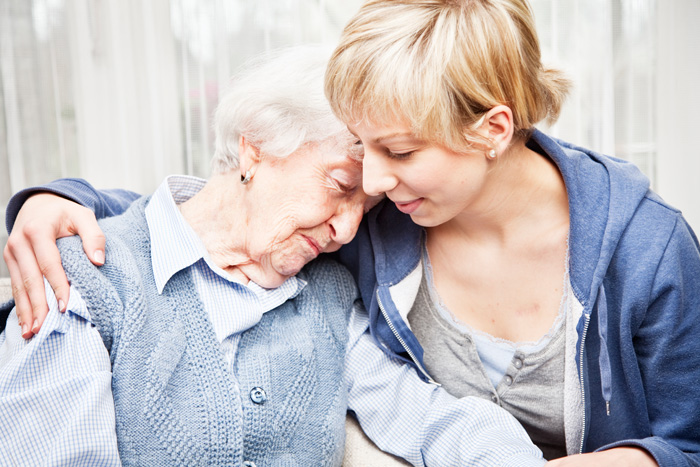
Owing to the increased health care education and technological advancements, the elderly population continues to grow with a positive projection on the longevity of their lives. Despite this however, physical, mental, emotional, and social challenges are still faced by the elderly as they continue to age. They may need constant support, care, and reassurance in order to thrive.
Many of them report feelings of helplessness and depression owing to lack of family ties or isolation. Some grow to be socially distant which aggravates the feeling of loneliness and despair. Health in this age group isn’t just the absence of disease or any other comorbidities, but the totality of their well-being including their mental health.
Table of Contents
What is aging?
What are the signs that your elderly loved one is depressed?
- Loss of interest in hobbies and other activities
- Persistent feeling of sadness
- Sleep disturbances
- Short-term and long-term memory problems
- Lack of appetite
What is aging?
Aging is the inevitable progress from birth and throughout life. It showcases a special tribute to the moments and milestones that a person has experienced year after year, leading to its closure. Adjusting to the changes brought about aging can be taxing and frustrating at times. There may be physical limitations that hinders any elderly to fully enjoy activities they usually indulge themselves in or mental health problems and mood changes that affect their ability to communicate and socialize with the people around them.
A person with depression would often feel like nobody understands them and are overwhelmed by the burdens that come with aging. Having a poor support system could add to the loneliness that they already feel, that is why in approaching any elderly who suffers from this condition, their family should also be properly informed what to do.
What are the signs that your elderly loved one is depressed?
Nobody is immune to depression as they age but there are ways to fight this and find joy despite the growing sadness and limitations. If you would want to know if one of your older family member suffers from depression, then you should pay attention to the following tell-tale signs of depression:
Loss of interest in hobbies and other activities – to observe this, you must have a clear baseline of what your elderly loved ones enjoy doing prior to this sign. Losing interest in a hobby or activity that once gave them enormous joy is alarming, especially when this has already been going on for weeks or months. Taking them to new adventures or re-introducing to them their hobbies in a newer fashion may reignite the passion they once had.
Persistent feeling of loneliness – sometimes elderly people stare into thin air and look so forlorn. This may be a quite common scene to behold, however, when a scenario like this persists even in events where joy and celebration are exuded, then there may be something that you and your elderly loved one need to talk about. Sometimes they may become extra cautious with what to say for the fear of becoming an additional burden than they already are. Constant reassurance is needed to help them understand how your support and care are all done out of love.
Sleep disturbances – when you’re depressed, you tend to overthink things and when you do, your brain finds it hard to shut down thoughts even at times when they need to. Sleep becomes erratic and it affects your mood, too. Elderly who experience this tend to become easily irritable over trivial things. It may be necessary to provide an environment where they can rest well by cultivating trust and assurance.
Short-term and long-term memory problems – depression messes with your brain significantly. Dementia often presents itself alongside aging and can be aggravated by depression. Though genetics play a major role in its occurrence, environmental factors such as lifestyle, social interactions, and diet cannot be set aside.
Lack of appetite – patients who suffer from depression often don’t find the need to eat and prefer to rather sleep in throughout the day. They are more preoccupied with deeper and more sensitive thoughts that run in their mind than thinking about which meal they should have next. This could be a pressing problem especially when it accompanies malnutrition and severe weight loss, which imposes additional health risks.
What causes depression among the elderly?
Reasons as to why the elderly population acquires this condition range from physical disabilities to emotional and psychological turmoil. Some show early signs of depression while others won’t be noticeable until years after.
Morbid conditions such as cardiovascular diseases, amputations, disability, trauma, and surgical complications often leave the elderly feeling helpless and limited. Now that they’re on medication or constant therapy, their sense of purpose gets affected and they waver with how to move forward after it all.
Fears also put a lot of weight and pressure on the elderly. This could be financial anxiety, neglect, abuse, or a general fear of dying. Recent bereavements of friends or other family members could add onto this constant feeling of uncertainty.
Isolation from family members or the society as a whole hastens that feeling of helplessness and loneliness that piles up day after day until it gets heavier to carry. Simple activities like a trip to the park or a get-together dinner could help bring them back to the touch of reality where support, care, and warmth can be appreciated.
Are elderly capable of self-help?
Yes, they are. In fact, self-help should be encouraged in this population. Others may think that just because they’re old, they’re already unteachable. This is far from the truth since the brain continues to evolve despite age. So teach them new skills, show them new places, and let them experience more of what they could enjoy. Everything you do now might just make the difference they need to fight their inner battles.

